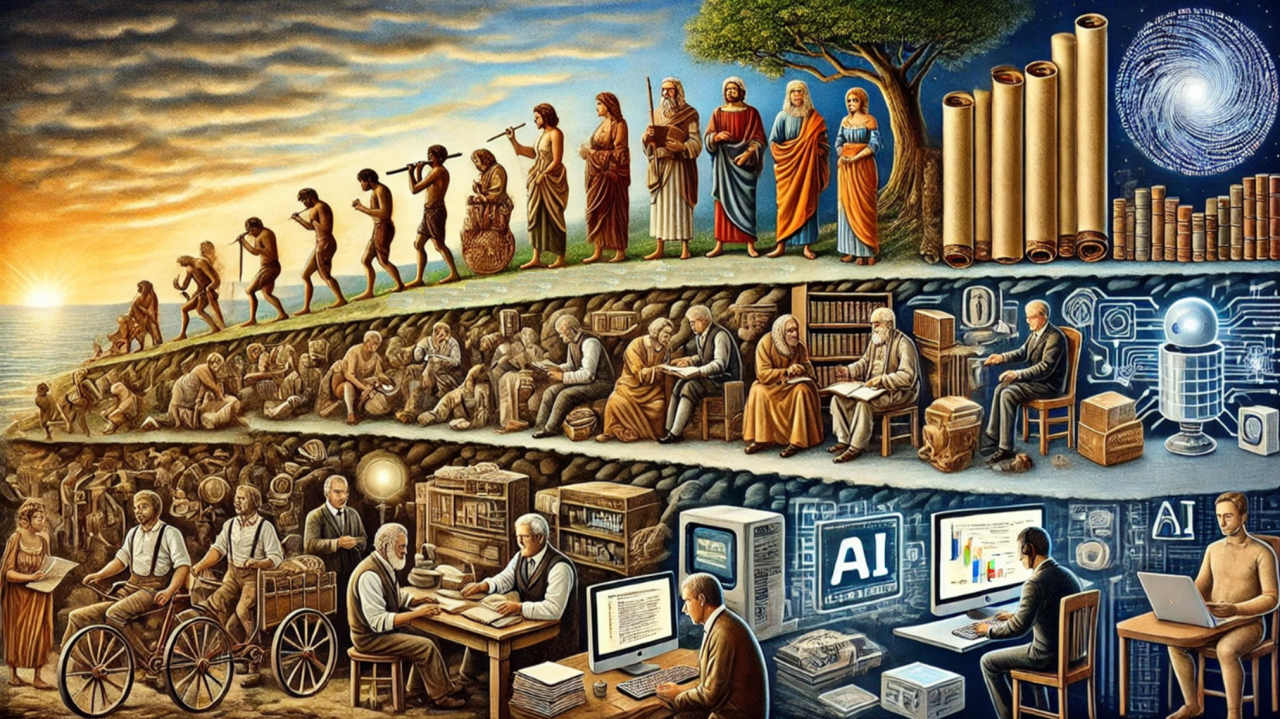


Our business is (and we suspect that yours might also be) a lot like AI, which bears a striking resemblance to pre-internet knowledge sharing, but faster, more pervasive, and with access to whatever it (AI) can get its hands on.
We asked ChatGPT to summarize this and ended up with the following structure and sequence (Note: we've spared a lot of detail, but I'm sure you'll get the idea).
1) Oral Tradition: For centuries, before the invention of writing, knowledge was shared orally. While rich in context, it was prone to distortion over time with each retelling.
2) Written Records:
3) Institutional Learning:
4) Industrial Era and Knowledge Distribution:
5) Digital Revolution: We'll let you fill in the blanks here.
6) Artificial Intelligence: What limitations could it possibly have? AI's Self-Assessment noted the following:
AI tells us, do this:
Data Governance: Implement strong data governance practices to ensure the data fed into AI systems is accurate, complete, and up-to-date.
Human Oversight: Maintain a balance between AI-driven insights and human judgment, especially in areas where qualitative factors are critical.
Integrative Approaches: Use AI in conjunction with other tools and methodologies to ensure a more holistic approach to business management, capturing both quantitative and qualitative aspects.
What does this really mean?
Be careful where you get your information. Ask around and inquire whether there are better sources (other experts in that domain). Test their knowledge. Do they actually know something (have an insight) that you might not know? Do they have evidence? Can they share that evidence in a compelling manner that adjusts your understanding? Do they know what to do with their findings? Anybody can find problems, but do they know 'what next'? How do we use that information to move forward in a satisfactory manner? Are they willing to admit when they do not have experience and don't know the full answer? Will they guide you to a better source of truth (i.e., someone with more subject matter expertise)?
Chris is a transformation leader with over 25 years of experience driving significant value and mitigating risks across a broad range of industries and functions. With a track record of generating more than $450 million in savings, he has excelled in both challenging and thriving environments within small businesses, mid-market firms, and Fortune 500 companies. A dual-degree graduate of Thunderbird and ESADE, Chris started his career at Arthur Andersen and progressed through roles from Corporate Audit to Global Human Resources at various Fortune 500 firms. He played a pivotal role in growing AArete, a global management consultancy, where he led initiatives that significantly reduced non-labor costs and improved compliance processes. An advocate for sustainable community initiatives, Chris was a founding member of a nonprofit focused on creating bicycle-friendly communities in New Jersey.